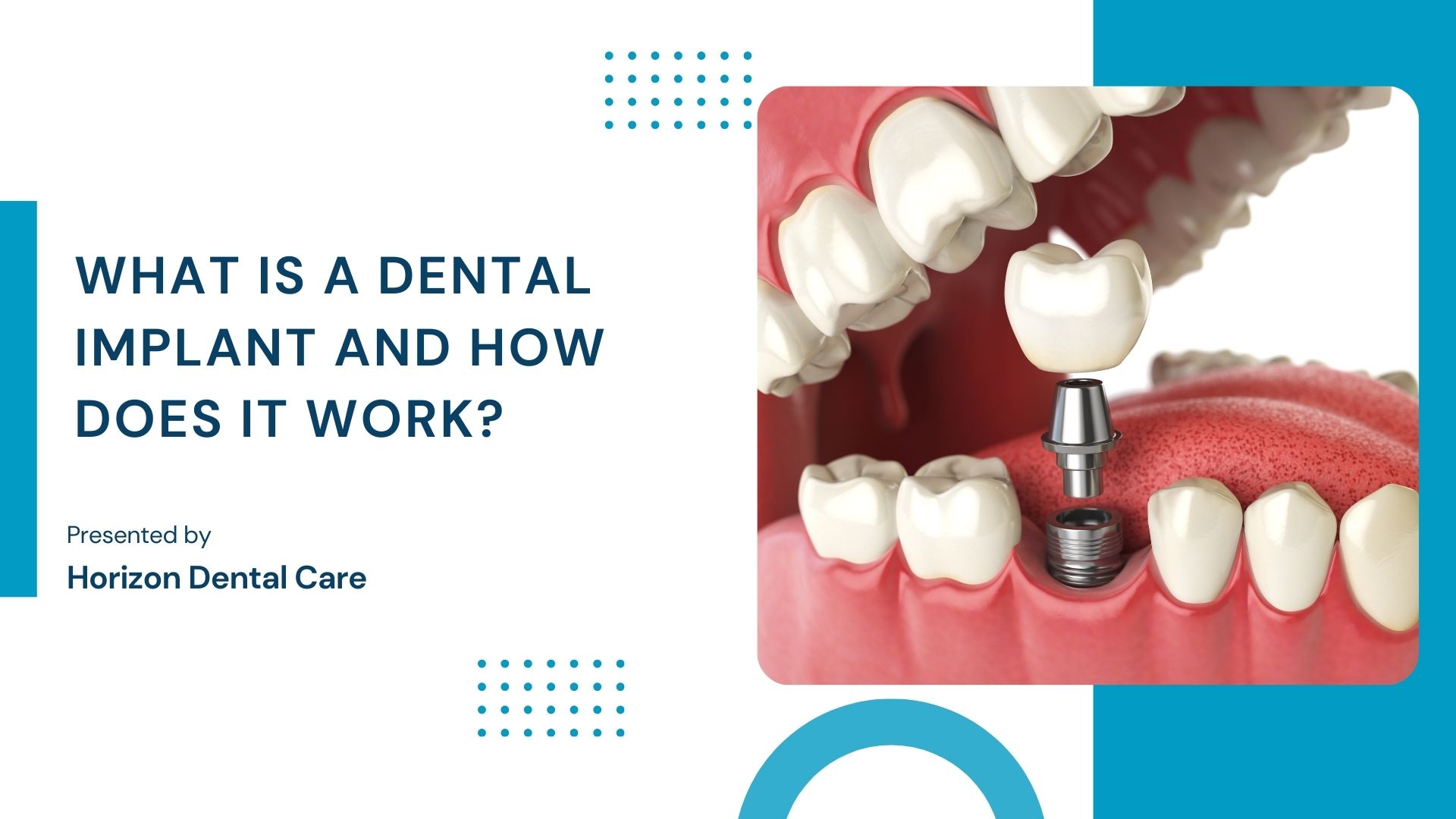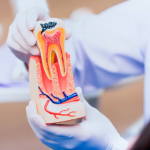Missing teeth may affect your confidence, eating habits, and even your general health. If you are after solutions to get your smile back, dental implants in London are a wonderful, long-lasting solution that many patients choose to suit their needs. But what is a dental implant, and how does it work? We’ll keep it simple for you to decide what is best for you.
📑 Table of Contents
What are Dental Implants?
A dental implant is generally a small screw that is meant to act as a false root of a tooth that is missing. It is manufactured of biocompatible materials, such as titanium, and will bond with your jawbone to provide a secure and stable base. Following implant placement, a crown will be screwed or attached onto the implant to give it the look and feel of a real tooth.
Dental implants are made to resemble your natural teeth in appearance, feel, and functionality. In addition, they are an excellent option, as they won’t shift around in your mouth while eating or talking, unlike dentures, and they can and will damage or put pressure on the adjacent teeth, like a bridge can.
- Long-lasting: implants can last for many years or even decades with proper care.
- Natural appearance: they blend nicely with your own teeth, so no one will notice a difference.
- Supportive: implants support the structure of your jawbone and keep the surrounding teeth in place to avoid shifting, which may happen with a missing tooth.
How Do Dental Implants Work?
Dental implants do this by a process known as osseointegration, where the implant actually becomes attached/fused with the jawbone naturally. That provides enough strength to hold a replacement tooth. Below is a simple guide:
| Step | What Happens |
|---|---|
| 1. Consultation | Your dentist in London reviews your oral health, checks bone strength, and determines if implants are right for you. Advanced techniques such as X-rays and 3D scans may be used. |
| 2. Insertion | During the procedure, the implant is set in the jawbone, and a local anesthetic ensures you feel no discomfort. |
| 3. Healing | Over a period of three to six months, the bone around the implant develops, firmly fixing it in place to receive the crown. |
| 4. Attachment | Lastly, the abutment, a small piece that supports the crown, will complete the implant. |
| 5. Crown Placement | A custom crown is placed on the abutment, completing the tooth and restoring your smile. |
What Are the Benefits of Dental Implants?
There are many advantages to implants over other tooth replacement options:
- Restore natural chewing & speaking function.
- Stop bone loss & help preserve facial structure.
- Do not involve adjacent teeth, as with dental bridges.
- It can last for many decades with good oral hygiene and periodic dental checkups.
- You can smile freely again if you give yourself greater confidence.
- Many patients report that implants feel so comfortable that they do not even remember that they lost a tooth.
Are There Any Risks of Dental Implants?
Dental implants are safe, but certain risks must be known. Talking to a dentist near you can help you make the correct choice. The risks might be:
- Infection of the site where the implant is done.
- Damage to nearby teeth, blood vessels, or nerves.
- Implant failure due to inadequate bone formation or poor healing.
- Sinus complications are encountered in situations where implants are done in the upper jaw.
It should be mentioned that complications are rare, particularly when proper planning for the treatment is conducted. Adhering to post-surgery care and oral hygiene reduces these risks substantially.
What Are Alternatives to Dental Implants?
If implants can’t be done for any reason, there are several other ways to replace missing teeth:
- Dental bridges: Using your adjacent teeth, they can “bridge” the gap in your mouth with a replacement tooth.
- Denture: A removable replacement for any number of teeth. Dentures are improving, and many are useful and comfortable.
- Resin-bonded bridges: A more conservative approach is usually used for front teeth.
All the options have benefits and drawbacks; your dentist will be able to describe all of these within the context of your oral health and unique circumstances.
Restore Your Smile at Horizon Dental Care
If you’re looking into dental implants, Horizon Dental Care in London is here to help you every step of the way. Our team is dedicated to making your experience comfortable and efficient, from the moment you first walk in for your examination to your final crown placement.
Let’s get started!
Schedule an appointment now to get your confident smile back and to see how dental implants can benefit your health. Don’t delay; your new smile is just one appointment away!
❓ Frequently Asked Questions
1. How long do dental implants last?
With proper oral hygiene and routine dental visits, dental implants can last many years, often decades or even a lifetime.
2. Is the dental implant procedure painful?
The procedure is performed under local anesthesia, so patients typically experience minimal discomfort during placement. Mild soreness afterward can be managed with prescribed medication.
3. Can anyone get dental implants?
Most healthy adults can receive implants, but adequate bone density is required. A dentist will evaluate your suitability with X-rays or scans.
4. How do I care for dental implants?
Implants should be cared for like natural teeth—brush twice daily, floss, and attend routine checkups to maintain long-term success.
5. Are dental implants safe?
Yes, dental implants are a safe and well-established treatment with a high success rate when placed by an experienced dentist.






